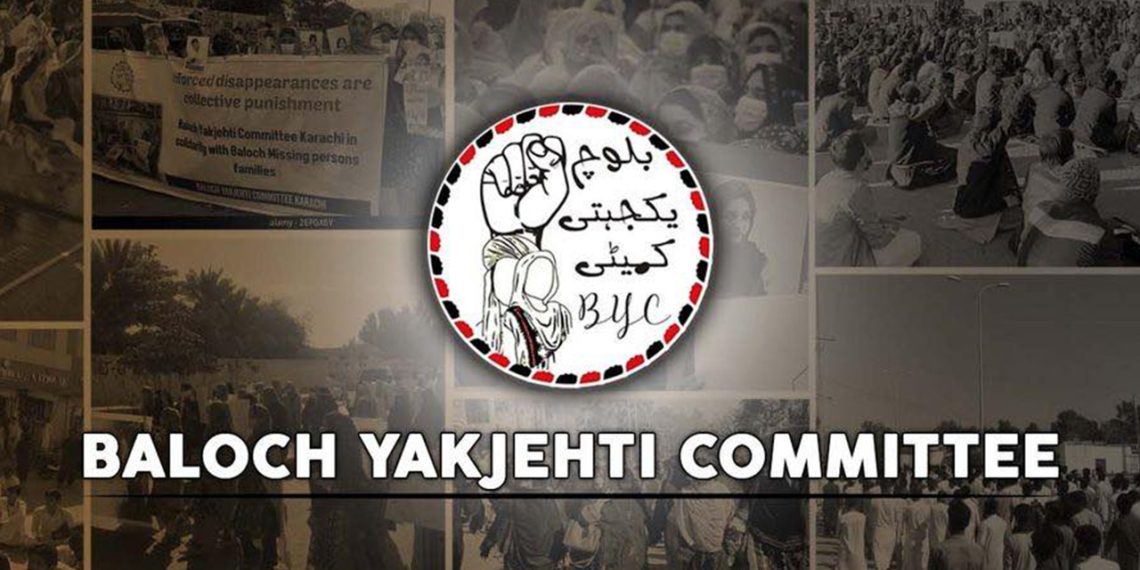Pakistani authorities have imposed a series of restrictions ahead of the Baloch Yakjehti Committee’s (BYC) planned national gathering on January 25 in Dalbandin to commemorate “Baloch Genocide Remembrance Day.”
The Deputy Commissioner of Chaghi, Ata ul Munim, issued a directive warning government employees against participating in political rallies or organizations, citing the Balochistan Government Servants (Conduct) Rules of 1979. The directive instructed department heads to report violations for disciplinary action under the BEED Act 2011.
Directive issued by the Deputy Commissioner of Chaghi
In addition, the Balochistan government has imposed Section 144 for a month, banning gatherings of five or more people and the public display of weapons. In Dalbandin, transport companies have reportedly been advised to suspend servicesfor an entire week. While formal notices have allegedly been issued, no official confirmation has been provided.
Simultaneously, an FIR was registered in Mastung against Dr. Mahrang Baloch, the central organizer of the BYC, and other members of the organization. The BYC described the charges as “baseless” and part of a broader campaign to suppress dissent and peaceful political activism.
In Dalbandin’s Charsar area, locals arranged stones on a mountainside to spell out “Bakhairat Mahrang” (Welcome Mahrang) in Brahui, expressing admiration for Dr. Mahrang Baloch. However, the inscription was erased overnight by unknown individuals. A resident told The Balochistan Post, “Everyone knows who fears Mahrang Baloch and who could be behind this act.”
Bakhairat Mahrang’ inscription in Dalbandin.
BYC Condemns Measures as Suppressive
The BYC condemned the restrictions and the FIRs, calling them part of a systematic campaign to silence Baloch voices. The organization accused authorities of selectively applying laws like Section 144 to stifle peaceful activism and claimed the state misuses the law to target the Baloch people for their identity and resistance to ongoing repression.
In a statement, the BYC said that hundreds of FIRs have been filed against its leaders and members since last year, many of which have been dismissed by courts as baseless. Despite this, new cases continue to emerge.
The group described these tactics as “apartheid-like” and “colonial” and called on the international community and human rights organizations to intervene. The BYC emphasized that such measures would not weaken the resolve of the Baloch people or their leadership
Public Mobilization Despite Restrictions
Despite the restrictions, awareness campaigns for “Baloch Genocide Remembrance Day” have gained momentum across the region, with thousands of women, children, and elders participating in rallies and corner meetings.
On Wednesday, the BYC Quetta Zone organized a rally from Balochistan University to the “Shuhda-e-Balochistan” Cemetery in New Kahan, Hazarganji. Participants traveled on motorcycles, rickshaws, and cars, chanting slogans against what they described as the “ongoing genocide of the Baloch people” and calling for support for the Dalbandin gathering.
Dr. Mahrang Baloch addressed public gatherings in Naseerabad and Dera Murad Jamali, condemning state oppression and urging unity among the Baloch people. She described the Dalbandin gathering as a critical opportunity to resist what she termed the “systematic elimination” of the Baloch people.
On Thursday, rallies in Mangocher and Kharan drew significant crowds. In Mangocher, Dr. Mahrang Baloch visited the Martyrs’ Cemetery and prayed at the grave of her father, Mir Ghafar Langove. Addressing supporters, she emphasized that the struggle against what she called the “Baloch genocide” would continue and praised Mangocher’s historical role in resisting “state oppression.” She called on the region to once again send a large crowd to Dalbandin.
BYC rally mobilizing support for January 25.
Meanwhile, in Kharan, a protest led by Dr. Sabiha Baloch saw participation from families of forcibly disappeared persons. Dr. Sabiha commended the public for their resilience, saying, “Despite state threats and intimidation, the turnout remains strong. We will honor this love by continuing our struggle against Baloch genocide.”
She warned that authorities might use force to suppress the Dalbandin gathering but said public resolve would prevail. “Even under curfews, violence, and martyrdoms in Gwadar, the people resisted. The Baloch have shattered the idols of fear,” she said.
No official statement has been issued by Pakistani authorities regarding these developments. Analysts suggest the current restrictions mirror efforts made last year during the “Baloch Raaji Muchi” gathering in Gwadar, where demonstrators reportedly faced violence, including live gunfire from security forces. Observers warn that such measures could escalate tensions further in the region.

